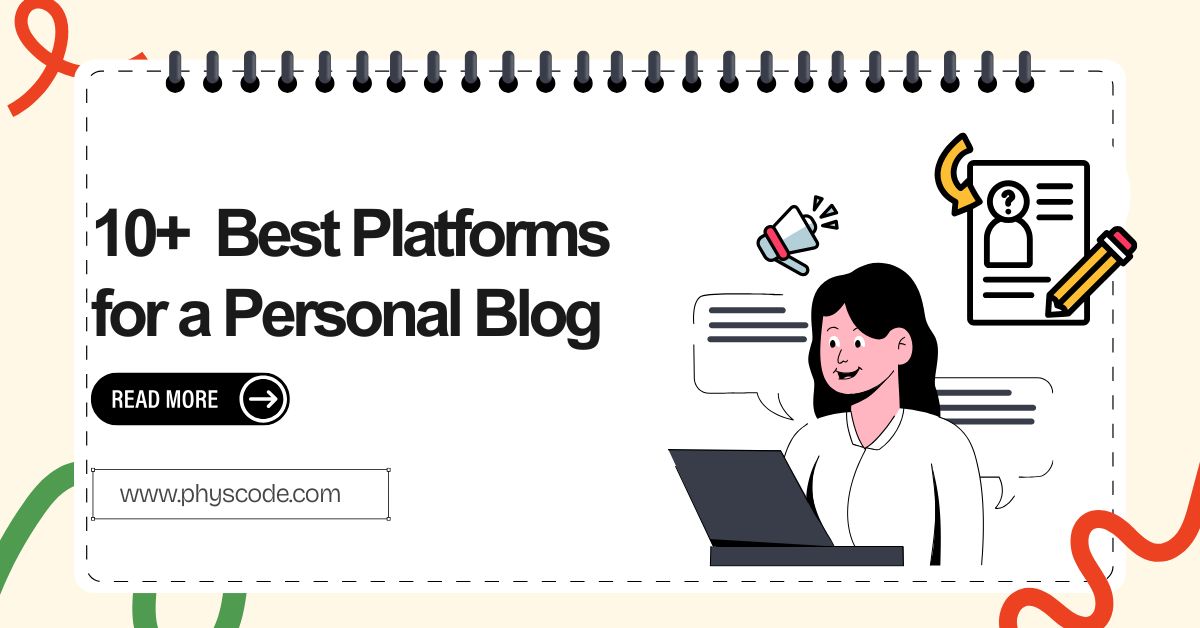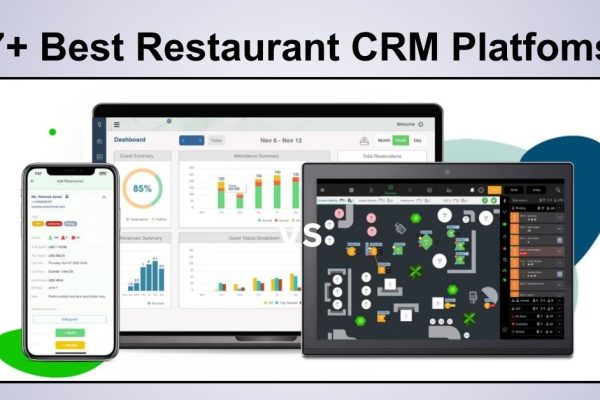10+ Best Platforms for a Personal Blog

Starting a personal blog can be an incredibly rewarding experience. Whether you want to share your thoughts and experiences, connect with like-minded individuals, or build a platform for your creative work, choosing the best platform for a personal blog is crucial.
But with so many options available, it can be overwhelming to know where to begin. That’s why we’ve compiled this comprehensive article on the best platforms for a personal blog, highlighting their key features, pros, and cons to help you find the perfect fit for your needs and goals.
From popular website builders like Wix and Squarespace to powerful content management systems like WordPress, and even niche platforms like Tumblr and Medium, we’ll explore the pros and cons of each option to help you find the perfect fit for your needs and goals.
For those looking to build their travel website, TravelWP is a highly recommended WordPress theme designed specifically for creating stunning and functional travel websites.

What is a Personal Blog?
Before we dive into the platforms, let’s clarify what a personal blog is. Essentially, it’s an online space where you can express yourself freely and share your thoughts, experiences, and ideas with the world. It can be about anything you’re passionate about – from travel and food to personal development and social commentary.
Why Start a Personal Blog?
There are countless reasons to start a personal blog. Here are a few:
- Share your passions: Connect with others who share your interests.
- Document your journey: Keep a record of your experiences, thoughts, and growth.
- Build your online presence: Establish yourself as an expert or thought leader in your field.
- Explore your creativity: Experiment with different writing styles and content formats.
- Connect with a community: Engage with readers and build relationships.
Now, let’s explore the top platforms that can empower you to create a unique and engaging blog:
WordPress (WordPress.org)

WordPress.org is the best platform for a personal blog if you’re serious about blogging and want complete control over your content and design. It’s a free, open-source platform that powers millions of websites worldwide.
Pros:
- Highly customizable with thousands of themes and plugins available.
- Excellent for SEO, helping your blog rank higher in search results.
- Strong community support with forums, tutorials, and developers.
- Scalable – can grow with your blog as it becomes more popular.
Cons:
- Requires some technical knowledge to set up and maintain.
- You need to find your own web hosting and domain name.
- Can be more expensive than other platforms due to hosting and plugin costs.
Wix

Wix is one of the most popular personal blog website platforms for beginners due to its user-friendly drag-and-drop interface and wide range of templates.
Pros:
- Easy to use with no coding experience required.
- Offers a free plan with limited features.
- Includes hosting and a free domain name for the first year.
- Mobile-friendly templates that look good on any device.
Cons:
- Limited customization options compared to WordPress.
- Can be difficult to switch templates once your blog is set up.
- Not as good for SEO as WordPress.
Squarespace

Squarespace is considered the best blogging platform for creatives who prioritize aesthetics and want a visually stunning blog. It offers award-winning templates and a focus on design.
Pros:
- Beautiful, modern templates that are easy to customize.
- All-in-one platform with hosting, domain, and security included.
- Excellent customer support with 24/7 live chat.
- Built-in features for marketing and selling products.
Cons:
- More expensive than Wix and WordPress.
- Limited third-party app integrations compared to WordPress.
- Can be less flexible for complex blog setups.
Hostinger Website Builder

Hostinger Website Builder is a great option for those seeking the best platform for a personal blog Reddit would recommend it, especially for beginners. It’s affordable, easy to use, and offers a good balance of features and simplicity.
Pros:
- Very affordable pricing plans.
- AI-powered tools for design, content creation, and SEO.
- Drag-and-drop interface with modern templates.
- Integrated with Hostinger’s web hosting services.
Cons:
- Limited app market compared to WordPress or Wix.
- Fewer design customization options than some competitors.
- Basic eCommerce functionality.
Drupal

Drupal is one of the most powerful blogging platforms available, but it has a steeper learning curve. It’s best suited for experienced users or those who need a highly flexible and customizable platform for a large or complex blog.
Pros:
- Extremely flexible and customizable.
- Robust security features.
- Excellent for building community-driven websites.
- Large and active community of developers.
Cons:
- Requires significant technical knowledge to use effectively.
- Can be more expensive to develop and maintain than other platforms.
- Not as user-friendly as Wix or Squarespace.
Weebly

Weebly is another popular personal blog website platform known for its ease of use and affordability. It’s a good choice for beginners who want to create a simple blog quickly and easily.
Pros:
- Drag-and-drop interface that’s easy to learn.
- Offers a free plan with basic features.
- Mobile-responsive templates.
- Built-in SEO tools.
Cons:
- Limited customization options compared to WordPress.
- Not as many features as Wix or Squarespace.
- Can be slow to load on some devices.
Blogger

Blogger is a free and user-friendly platform from Google, making it a great choice for beginners who want a simple way to start a blog. It’s one of the oldest blogging platforms and remains a solid option for those seeking ease of use and reliability.
Pros:
- Free to use with a Google account.
- Easy to set up and manage with a basic interface.
- Reliable hosting with Google’s infrastructure.
- Can be customized with templates and gadgets.
Cons:
- Limited design flexibility compared to WordPress.
- Fewer features than other platforms.
- Not ideal for professional or business blogs.
Tumblr

Tumblr is a microblogging platform that combines blogging with social networking. It’s a popular choice among younger audiences and those who prefer shorter-form content and visual-heavy posts. It’s considered the best platform for a personal blog Reddit users often recommend it for casual blogging and sharing.
Pros:
- Free and easy to use.
- Strong community with a focus on sharing and reblogging content.
- Supports a variety of content formats, including text, images, videos, and GIFs.
- Great for visual storytelling and creative expression.
Cons:
- Limited customization options for blog design.
- Not ideal for long-form blog posts or in-depth articles.
- Can be difficult to monetize.
Final Thoughts
In conclusion, the best platform for a personal blog depends on your individual needs, priorities, and technical skills. You should consider factors like ease of use, customization options, pricing, and built-in features when making your decision.
Don’t be afraid to experiment with different platforms before settling on your perfect match. Many offer free trials or plans, allowing you to get a feel for their interface and features before committing.
Happy blogging!
You may also like
7+ Best Restaurant CRM Platforms to Boost Revenue
Posted on December 23, 2025Running a successful dining establishment requires more than just excellent food and service; it requires data.
When profits are tight, building repeat customer relationships determines whether a business can succeed.
A restaurant CRM plays a crucial role as a high-value business asset.
Industry statistics frequently
7+ Best Help Desk Software for Travel and Hospitality
Posted on December 2, 2025Are you overwhelmed by a flood of booking inquiries, last-minute cancellations, and guest requests scattered across email, phone calls, and social media?
In the travel and hospitality industry, response time is the currency of trust.
A delayed response to a traveler stranded at an airport or a guest







